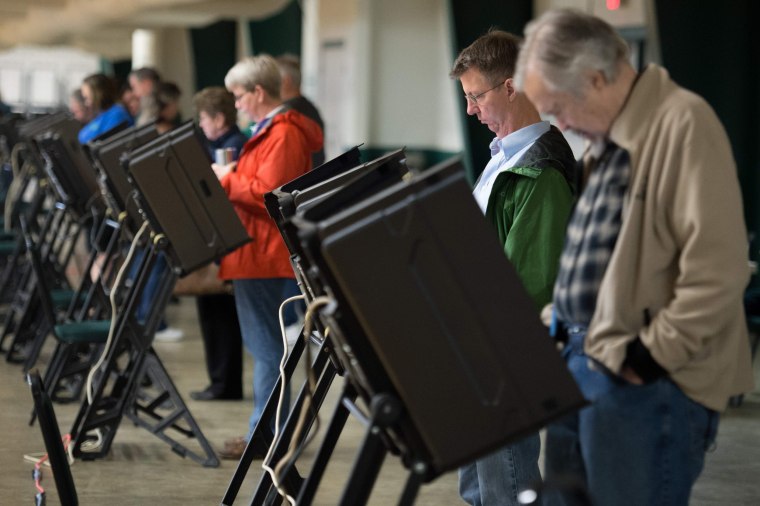Forty-five states and the District of Columbia are mounting a bipartisan rebellion against President Donald Trump’s commission on vote fraud by either declining to release any of the requested data or by providing only limited information to the panel.
The Presidential Advisory Commission on Voter Integrity's request for extensive personal information about voters has ignited a firestorm in many states, including from both Republican and Democrat officials who oversee elections.
The panel is seeking "dates of birth, political party (if recorded in your state), last four digits of social security number if available, voter history (elections voted in) from 2006 onward, active/inactive status, cancelled status, information regarding any felony convictions, information regarding voter registration in another state, information regarding military status, and overseas citizen information."
Nineteen states — both red and blue — and D.C. are flat-out refusing to comply with the request, citing privacy concerns and some claiming the 15-member vote fraud panel is politically-motivated.
Twenty-six states said they plan to only hand over only what is deemed public information by their respective state laws, while five states have yet to receive the commission's request or are still reviewing it, according to a count by NBC News.
Many officials have expressed disbelief and outrage at the commission's call to hand over a staggering amount of voter data, some of which they say is confidential or sensitive.
“I’m appalled that they even included that in their (letter),” Jim Condos, the Vermont Secretary of State, told NBC News. “They should know better.”
Condos said he will provide no information about Vermont voters to the commission.
The panel was created by Trump through executive order in May. It is chaired by Vice President Mike Pence and Kansas Secretary of State Kris Kobach, a strict voter identification law advocate, who wrote the letter last week to all 50 states and Washington, D.C., seeking the data.
Arkansas Gov. Asa Hutchinson, a Republican, on Wednesday directed his secretary of state to not release any sensitive information to the panel.
“The request is simply too broad and includes sensitive information of Arkansas voters,” Hutchinson said in a statement.
Democrats have also refused to provide information to the panel, saying the move could lay the groundwork for voter suppression and perpetuate the unfounded claims by Trump that millions voted illegally in the 2016 election.
"There's not enough bourbon here in Kentucky to make this request seem sensible," Kentucky Secretary of State Alison Grimes, a Democrat, said on MSNBC last week, adding that she would not turn over any sensitive voter info.
Deputy Press Secretary Sarah Huckabee Sanders on Friday called the refusal to hand over voter information “mostly a political stunt.”
"The commission is requesting what any person on the street...can walk into a county election office and get," Kobach said on MSNBC last week.
It is unclear how the commission plans to move forward after the backlash. The panel is slated to meet later this month.
"They can go jump in the Gulf of Mexico and Mississippi is a great state to launch from," Delbert Hosemann, a Republican and the Mississippi Secretary of State, said in a statement last week, adding the state has the right “to protect the privacy of our citizens by conducting our own electoral processes.”
Kobach, in a statement on Wednesday, disputed that 44 states were refusing to assist the commission and he said that 36 states have either "agreed or are considering participating" with the panel.
"Despite media distortions and obstruction by a handful of state politicians, this bipartisan commission on election integrity will continue its work to gather the facts through public records requests to ensure the integrity of each American's vote because the public has a right to know," he said.

